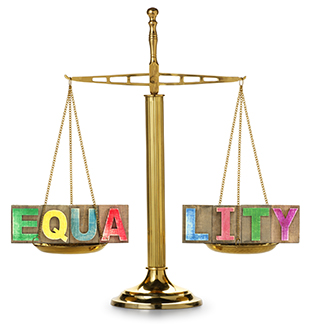Values in the voluntary sector
Having examined organisational values and how personal values fit with organisations, you will now focus on whether it is possible to identify shared values in the voluntary sector as a whole. Many discussions among researchers and voluntary sector practitioners about what is unique or different about the voluntary sector highlight that it is perceived to be values-driven, with staff, volunteers, founders, board members and other stakeholders sharing a set of core values. If values are at the heart of the sector, what does that mean given the diversity of organisations within the sector?
Values that could be considered common to the voluntary sector as a whole include honesty, participation, democracy, fairness, justice, accountability, equality, equity (fairness), compassion, freedom, empowerment, rights, solidarity, dignity, integrity, respect, trust, citizenship and tolerance.
The National Council for Voluntary Organisations (NCVO) lists what it regards as the shared values for the voluntary sector:
Our values shape NCVO [Tip: hold Ctrl and click a link to open it in a new tab. (Hide tip)] 's culture.
They guide how we behave and make decisions.
We will;
use evidence. We base what we say and do on the best research and our members’ experiences.
be creative. We explore new ideas and approaches, looking for what will add real value.
be collaborative. We work with our members and partners to achieve the best results.
be inclusive. We value diversity and work to make sure that opportunities are open to all.
work with integrity. We are open and honest, and do what we believe is best for our members, volunteers and the voluntary sector.
Focusing on a sector as a whole inevitably involves making some general assertions. Not all of the values above would apply to all the organisations within the sector, but it gives a sense of the main purpose or direction for organisations considered to be part of this sector. Furthermore, having a set of shared values for the sector is perceived to give it an advantage over other sectors, which might be useful in bids for funding and contracts. It also builds an identity and set of goals that organisations, large or small, can share.
How do organisations communicate their values?

